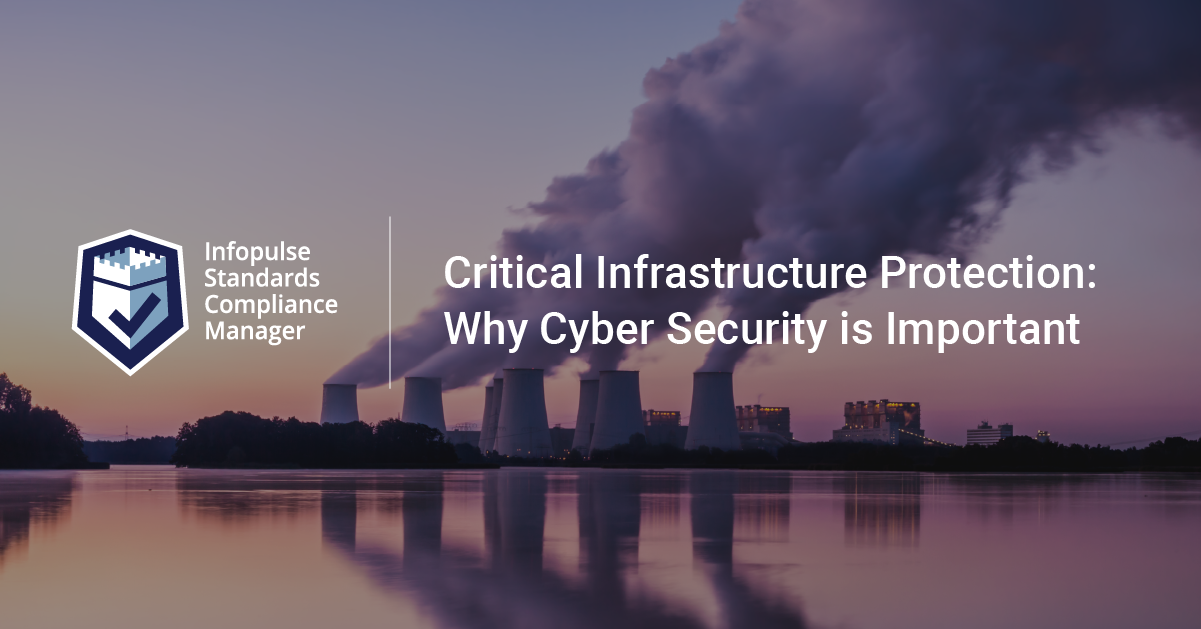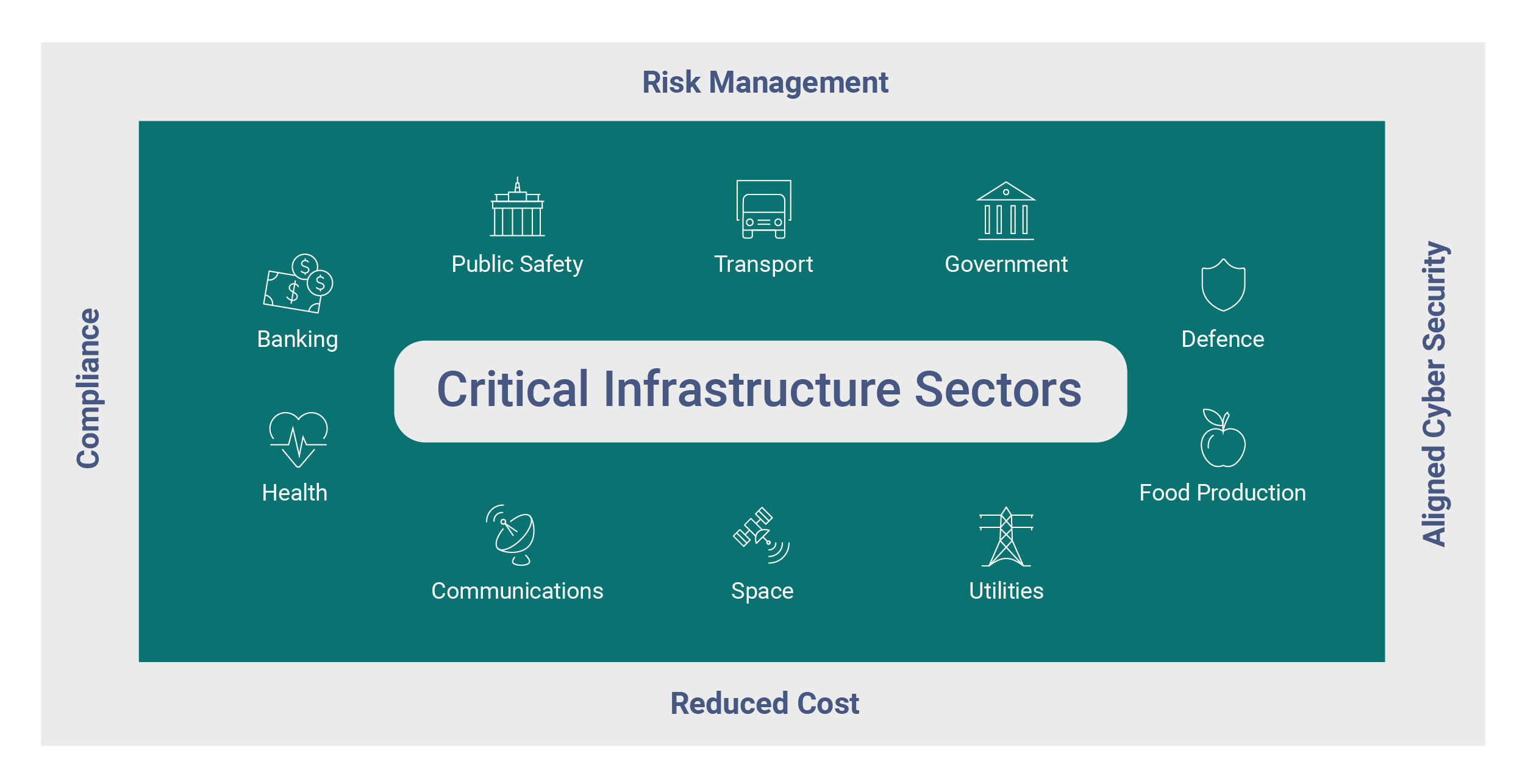Critical Infrastructure Protection: Why it is Essential Today

Today, in view of the pandemics-related “new normal”, Critical Infrastructure protection is one of the most burning issues these organizations have to deal with. To maintain the stability and safety of the state, community, and economics, CI entities are putting great efforts to successfully sustain their security systems and stay afloat in the face of possible threats.
What Is Critical Infrastructure
Critical infrastructures (CI) are organizations of major importance to the state and community. Their impairment or failure results in significant disruptions to public safety, sustained supply collapse, or other serious consequences. It is Critical Infrastructure organizations that are working on the front line to ensure safety and health to millions of people during the coronavirus crisis. That’s why these entities should take extra care of their privacy and security.

The Main Challenges for Critical Infrastructures Today
The information systems in Critical Infrastructure have their own set of specifications, including the use of legacy and proprietary systems with poor documentation, the lack of security training among the personnel, the legal and regulatory environment, safety risks related to available physical equipment. Yet the toughest is connected with cyber threats and maintenance of business continuity.
Increased Cyberattacks on CIs
According to the Global Risks Report, cyberattacks and data thefts are expected to remain among the top of the long-lasting risks businesses will encounter throughout the next 10 years. Hackers have been targeting critical infrastructures for years; it is essential to realize how challenging it can be to protect them against external and insider threats. CI organizations should pay attention to creating and following frameworks for improving their cybersecurity.
Business Continuity Problems
Critical infrastructure is essential during the response to the COVID-19 crisis, as hospitals and governmental organizations were put on the frontier to withstand the pandemics. CI organizations have to function under any circumstances and strengthen their security to avoid any failures and disruptions.
How Can CI Deal with The Security Challenges
To successfully face all upcoming and existing security and operational challenges, CI organizations should continuously increase awareness and maintain proper protection levels for their assets. High-security levels can be achieved with the help of corresponding security standards and regulations that specifically suit the CI entities.
Standards that Critical Infrastructure Organizations Must Implement
ISO 27001
The ISO 27001 standard is the basis for establishing Information Security and performing effective management of the ISMS process.
ISO 22301
Since critical infrastructures are vulnerable to disaster scenarios, ISO 22301 is to be implemented to provide faster recovery. ISO 22301 focuses on business continuity management, including business impact analysis, identification of critical processes, risk management, and development of formal procedures for business recovery in case of force majeure.
IT-Grundschutz
Security standard BSI IT-Grundschutz in Germany is one of the most comprehensive and holistic methodologies for establishing an ISMS, as it provides companies with standardized security recommendations and clearly outlined implementation steps collected in the Compendium.
Industry-Specific Standards
It’s critical to keep in mind that each country may have specific laws and regulations. B3S are customer-specific standards developed by the Federal Office for Information Security (BSI) in Germany. B3S are very flexible, as they compile suitable security precautions for each industry depending on the specific requirements that CI is free to implement in the best suitable way. That’s why CI operators need to look for platforms that support the implementation of B3S according to the Act on the Federal Office for Information Technology (BSI Act – BSIG).
Taking advantage of security standards ISO 27001, ISO 22301, BSI IT-Grundschutz, and industry-specific regulations, Critical Infrastructures can build their ISMS capable of providing a stable, safe, and continuous operation. Without a doubt, implementation of these multiple standards supported by a robust compliance software is the optimal method to ensure a strong critical infrastructures security under current circumstances.
How Can Critical Infrastructures Successfully Deploy Corresponding Standards
Implementing IT security standards for CI can be quite time-consuming and challenging. Here’s when a modern GRC solution can become a useful tool in maintaining multiple standards. Infopulse SCM is the software specifically tailored to the needs of Critical Infrastructure operators that enables to gain a comprehensive holistic view of the whole security system.
It offers the following benefits for CI operators:
- Create and manage assets, their types, and attributes
- Apply and maintain IT security and risk measures
- Monitor all compliance activities
- Track progress and operational execution of all compliance and risk-related tasks
- Report security faults to BSI.
Final Word
Critical infrastructure organizations need to continuously put more efforts to detect, prevent, and mitigate threats. Cyber protection techniques and technologies are predefined by the essential standards applicable to CI organizations that have been developed specifically for each sector. Implementing the IT security standards with a tool-driven approach based on the Infopulse SCM solution enables companies to maintain a holistic approach in their efforts and successfully coordinate and quickly react to critical security hazards.
Try Compliance Aspekte For Free
Book a 1-2-1 Live Demo and Obtain a 3-months Non-binding Trial
